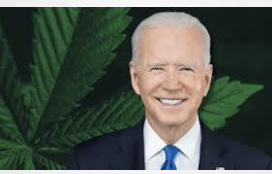As we move into the last quarter of the year this issue appears to becoming increasingly public and at long last too.
This article by Cannabiz takes a look at what’s happening and suggests some solutions
Here’s a snippet
The Start of Monopolies and Oligopolies in the Cannabis Industry
Monopolies and oligopolies started developing years ago in the cannabis industry — not just in terms of big businesses usurping smaller businesses but also in terms of state regulations that allow vertical integration, which leads to markets dominated by one or a few players that control the cultivation, processing, and sale of cannabis products.
Another way monopolies and oligopolies have an opportunity to develop in the cannabis industry happens when states cease awarding licenses. In California, oligopolies formed in a different way. Regulations passed leading up to opening the state’s adult-use market in 2018 allowed large businesses to exploit a loophole and obtain as many cultivator licenses as they could afford.
According to data from Cannabiz Intelligence™, a handful of cannabis license holders dominate multiple markets across the United States. In fact, 10 public companies each hold more than 100 licenses – some with more than 200 licenses – and have operations in as many as 22 states. These 10 companies hold licenses across the supply chain, and some report total quarterly revenues exceeding $300 million.
Based on the data, it’s not surprising that smaller cannabis businesses across the country are struggling to compete with bigger cannabis companies.
Putting a Stop to Monopolies and Oligopolies to Preserve Competition in the Cannabis Industry
“If we wait until there already is a monopoly that’s acting like Big Tobacco, it’ll be too late. What we have to do is be intentional about preventing it in the first place,” says Shaleen Title, former commissioner of the Massachusetts Cannabis Control Commission, current CEO of the Parabola Center (a drug policy think tank), distinguished fellow in cannabis policy at the Ohio State University College of Law’s Drug Enforcement and Policy Center, and vice chair of the Cannabis Regulators of Color Coalition.
This year, Title released a report that drew attention to the growing problem of monopolies in the cannabis industry, Bigger is Not Better: Preventing Monopolies in the National Cannabis Market. In the report, she proposed a number of steps that should be taken to improve competition in the cannabis industry when federal legalization happens. Her suggestions include:
- Personal Growing: Allow people to grow a reasonable number of cannabis plants for personal use.
- Vertical Integration: Prohibit vertical integration that requires a business or entity to hold multiple licenses across the supply chain.
- Market Control Limits: Rather than capping the total number of licenses available, there should be a limit on how much of a market any one person or entity can control.
- State Incentives: Incentives should be created to encourage states to license small or disadvantaged businesses.
- Ownership Limits and Merger Reviews: Ownership limits should be enforced, and mergers should be reviewed based on any evidence of predatory or anticompetitive practices in state cannabis markets.
- Industry Exclusions: Any corporation that has engaged in corporate crimes, defrauded the public, or caused significant public health damage should not be allowed to enter or participate in the cannabis industry.
- Anti-monopoly Limit Enforcement: Enforce anti-monopoly limits with a special multi-agency task force.
- Interstate Commerce: Allow states to either ban or delay interstate commerce after federal legalization happens to ensure local businesses don’t lose their state-level advantages.
Title says, “The rise of MSOs is a sign that antitrust issues are timely and must be considered by regulators sooner rather than later.” In other words, waiting until after cannabis is legalized at the federal level to develop antitrust regulations will be too late.
Read full article at

















